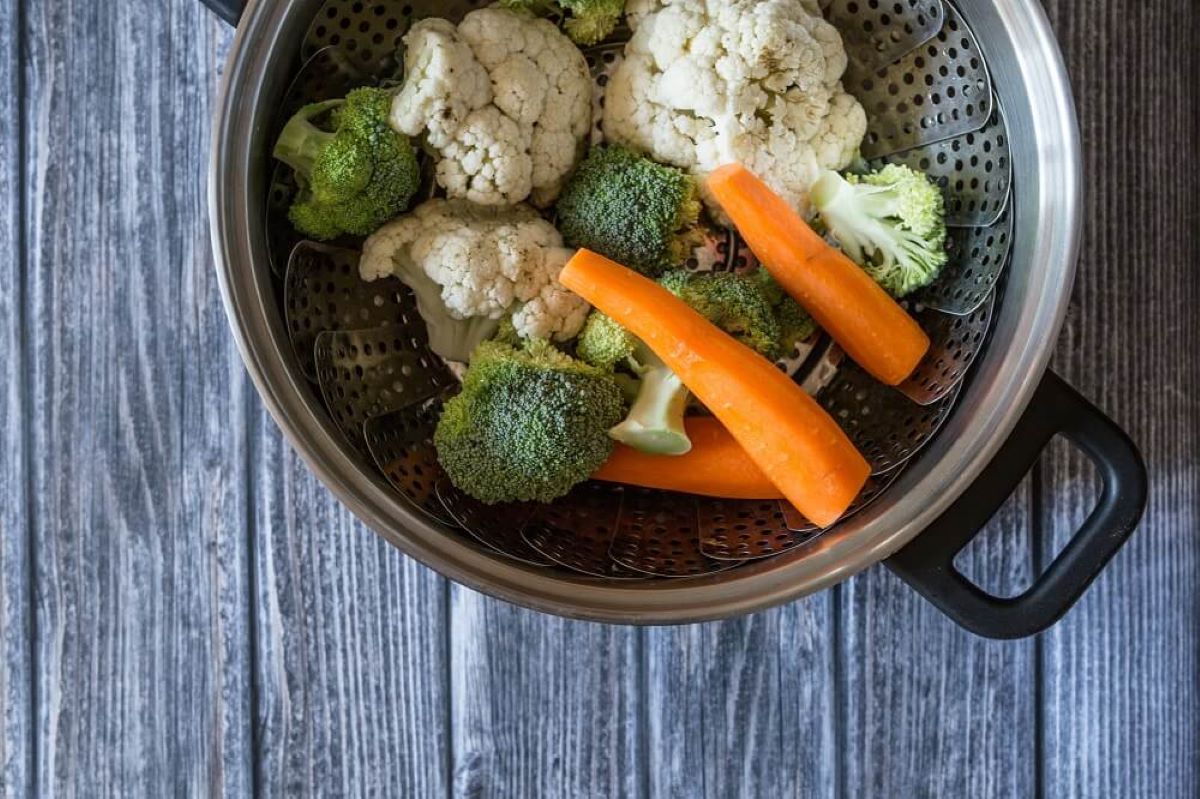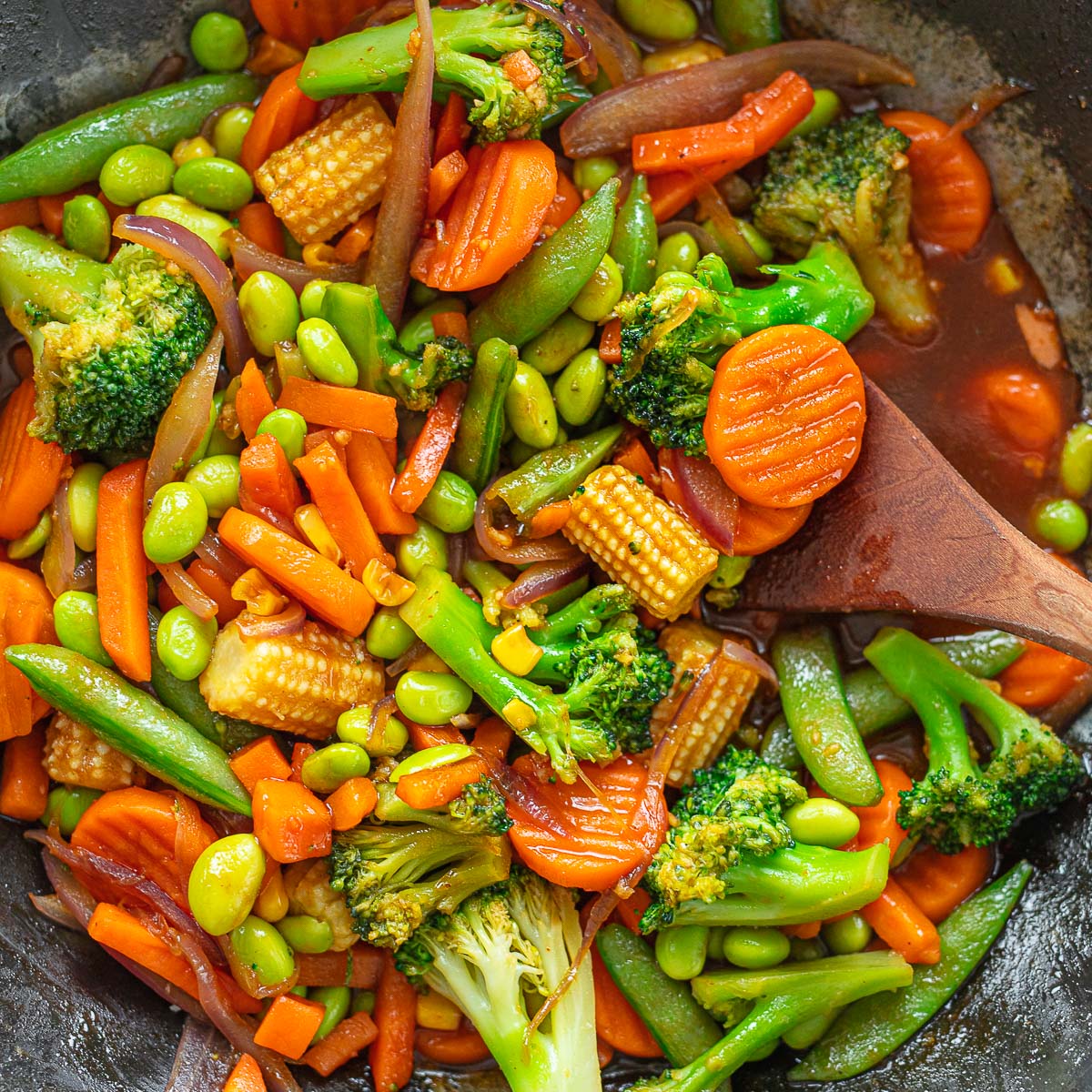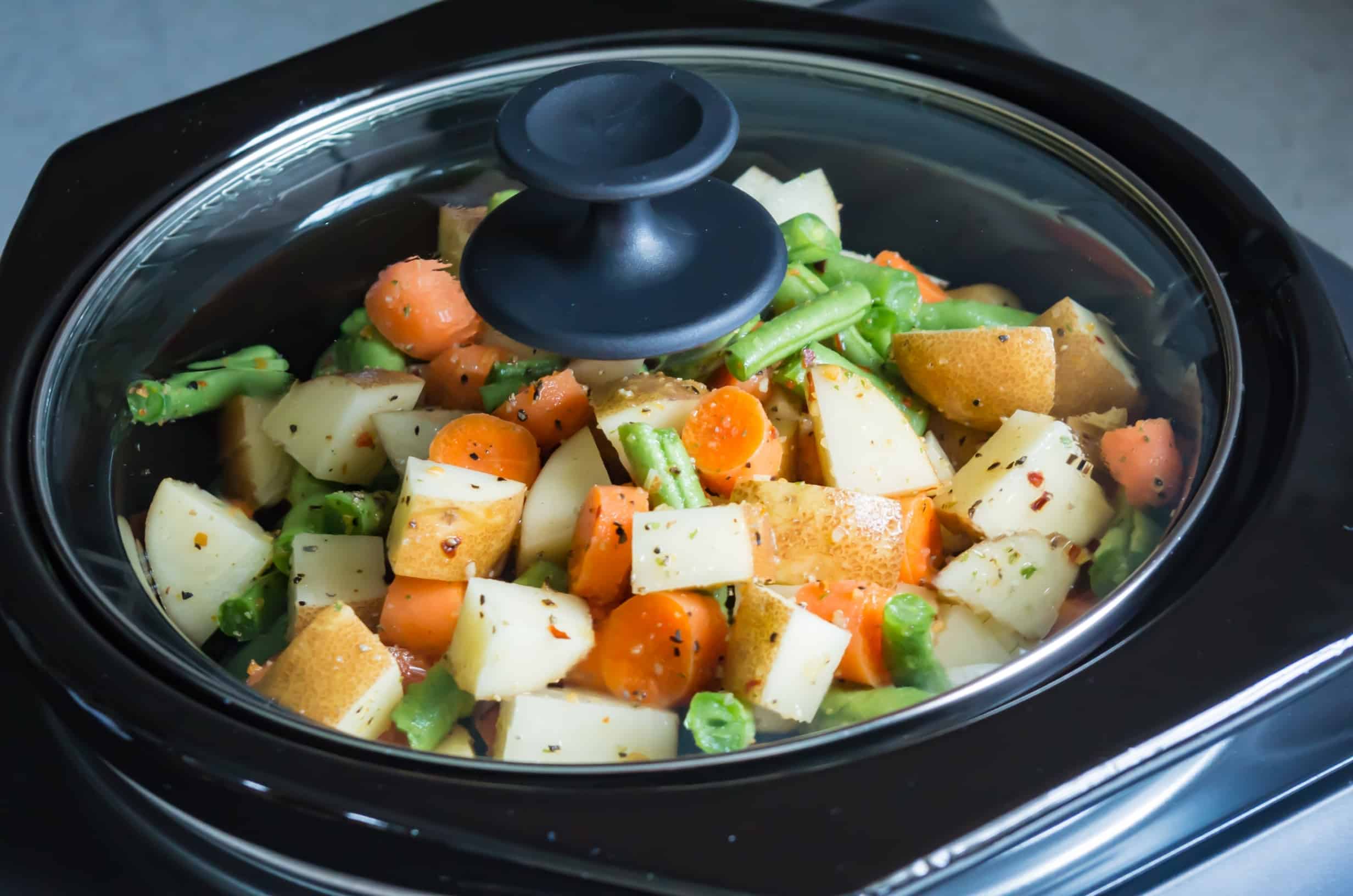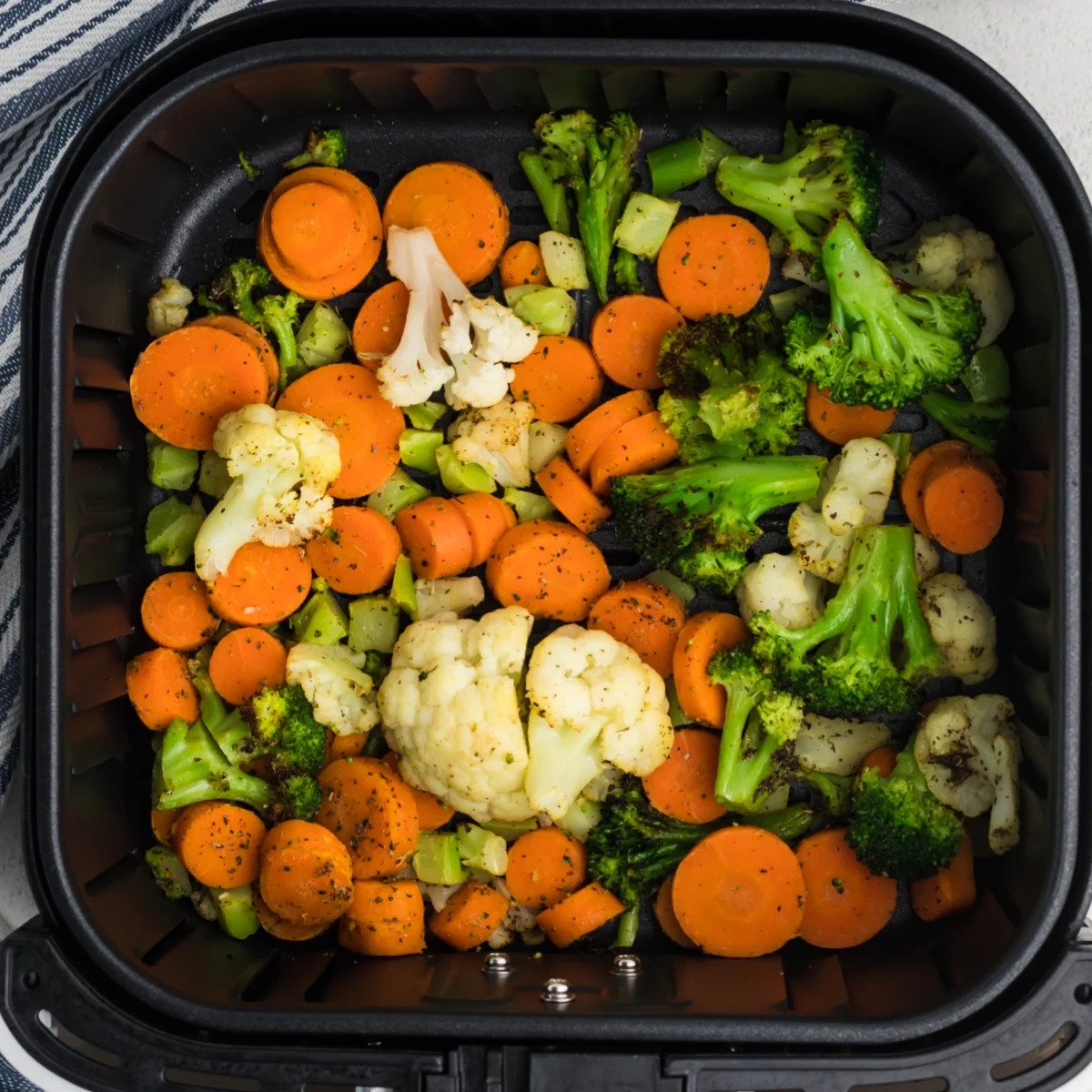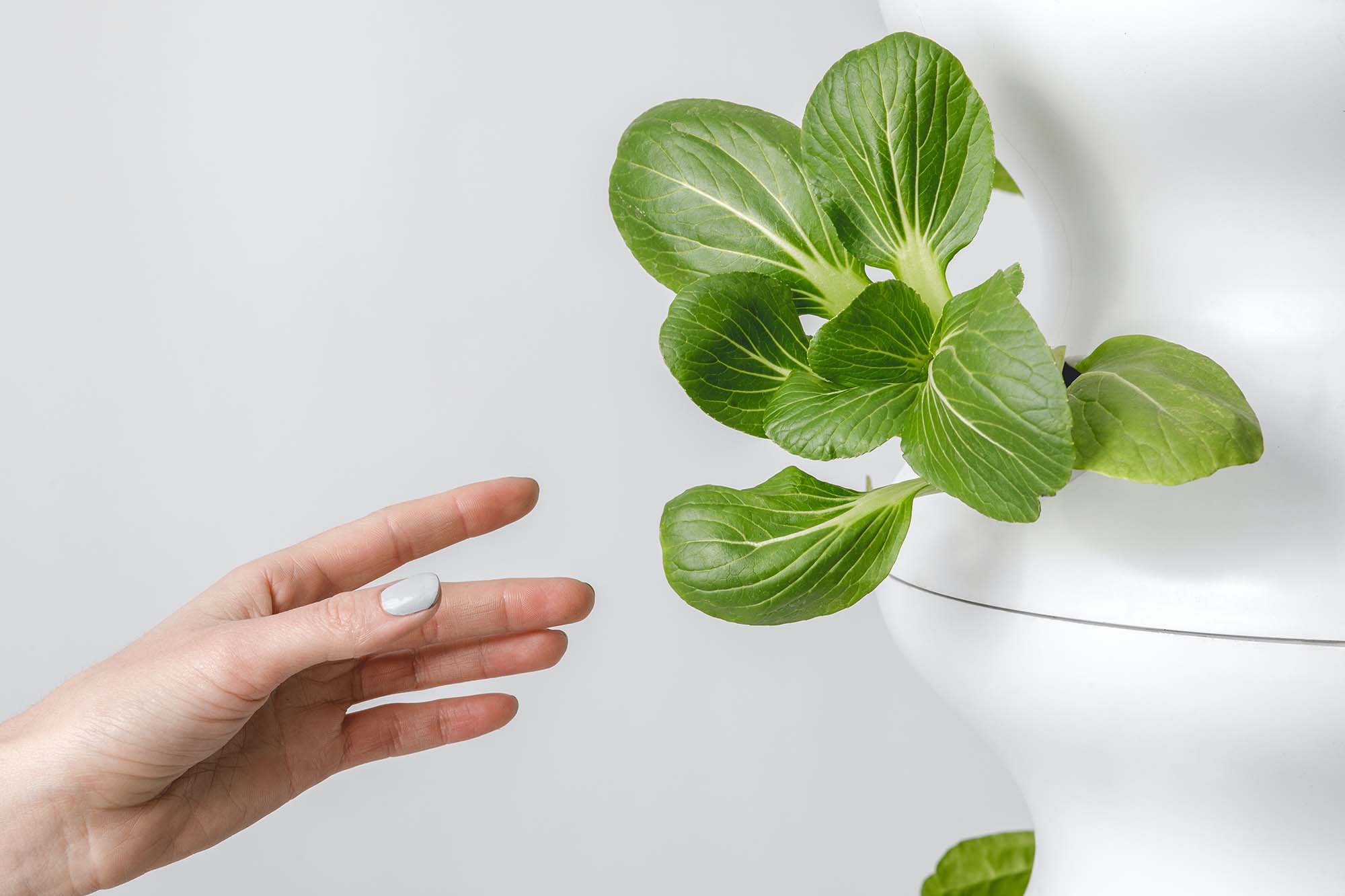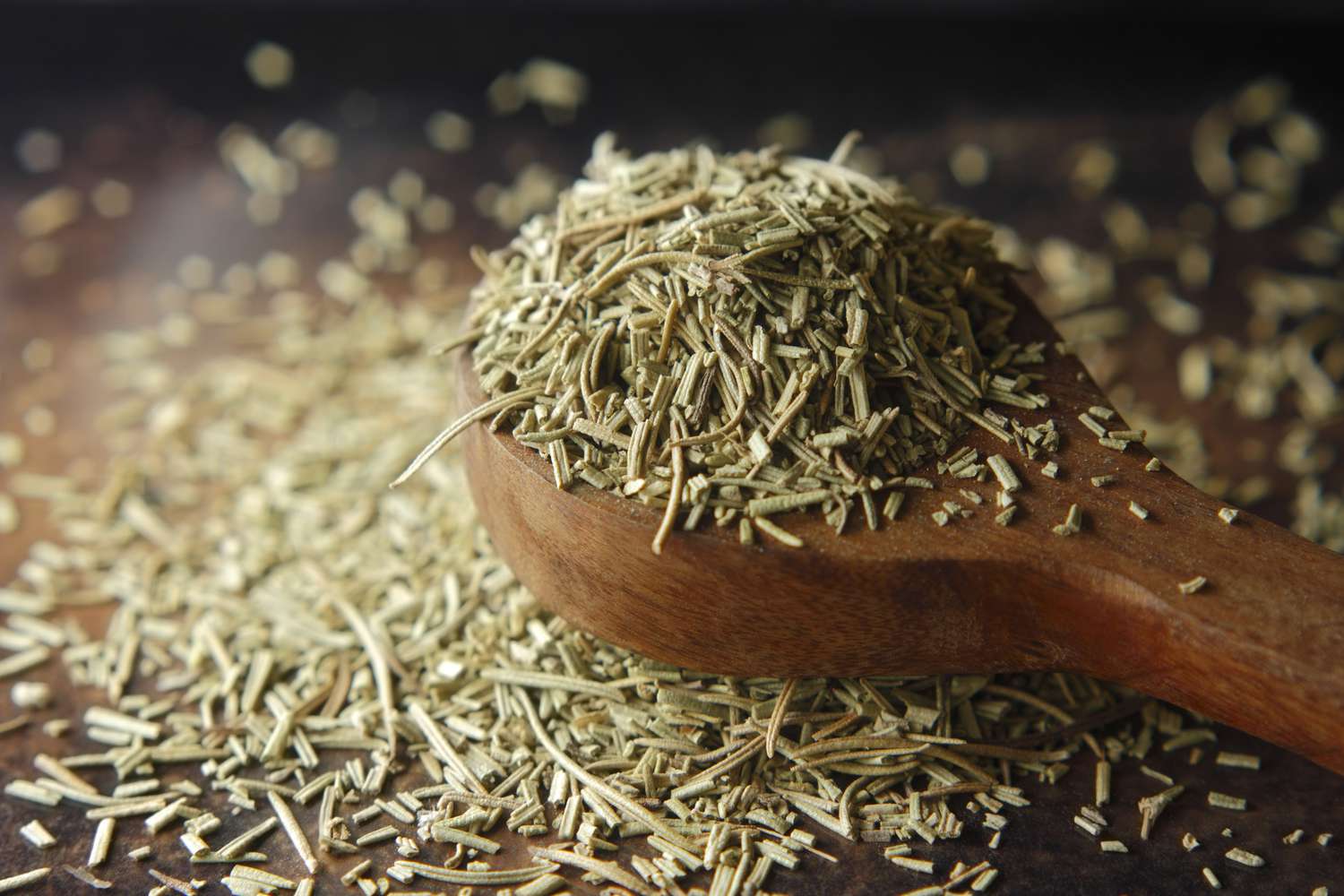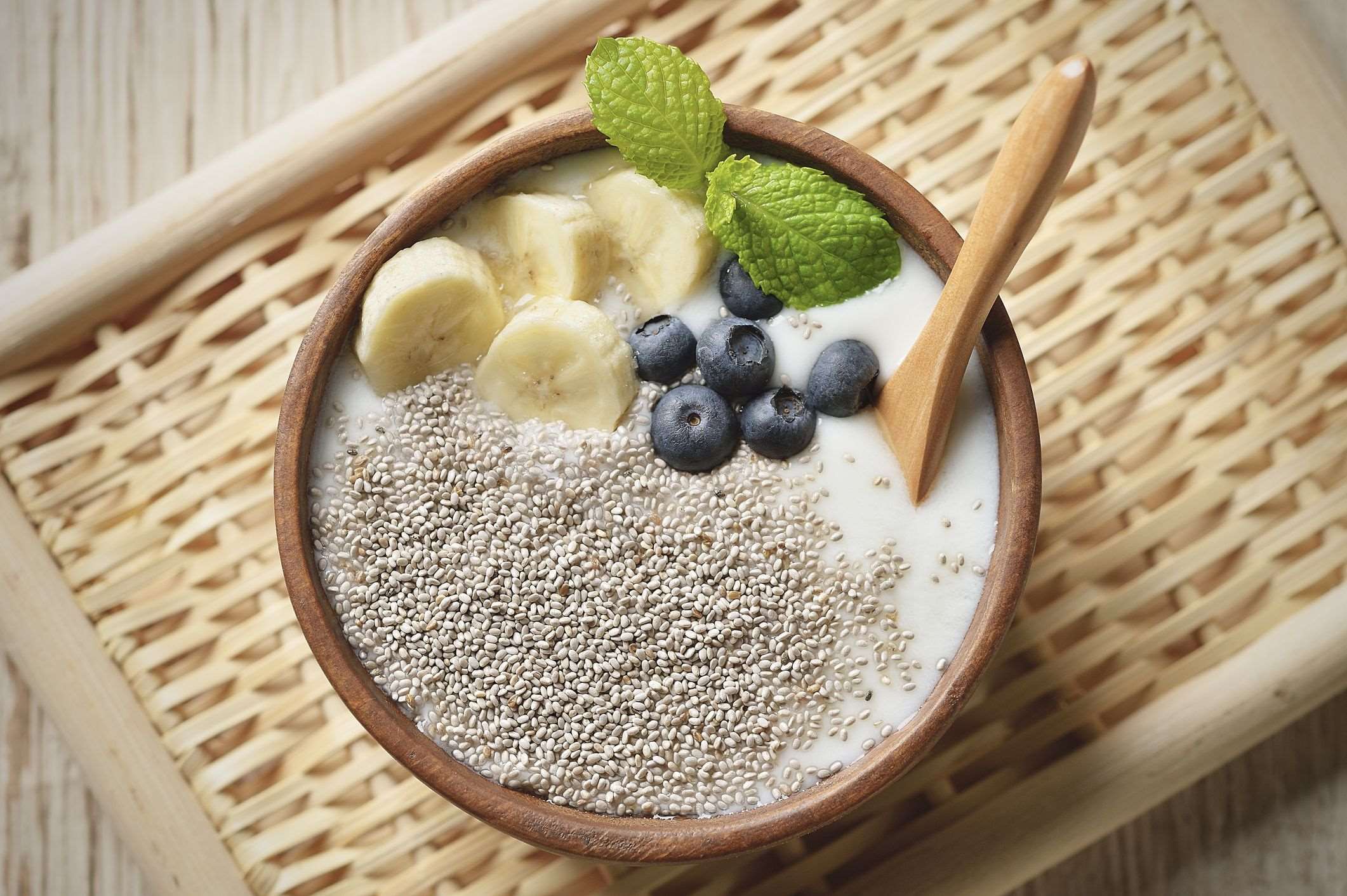Home>Gardening News and Trends>Latest News>Do Vegetables Lose Nutrients When Cooked
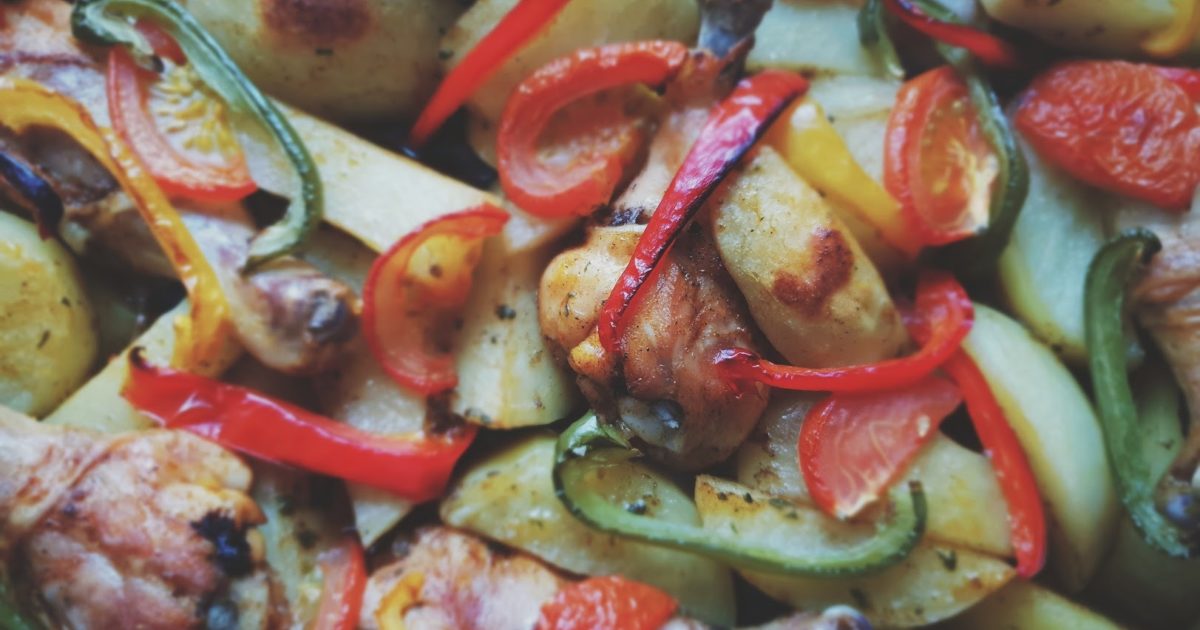

Latest News
Do Vegetables Lose Nutrients When Cooked
Modified: January 22, 2024
Discover the latest news on whether vegetables lose nutrients when cooked. Explore the impact of cooking methods on the nutritional value of veggies.
(Many of the links in this article redirect to a specific reviewed product. Your purchase of these products through affiliate links helps to generate commission for Chicagolandgardening.com, at no extra cost. Learn more)
Table of Contents
Introduction
When it comes to maintaining a healthy lifestyle, incorporating vegetables into our diets is essential. These nutrient-rich powerhouses offer a wide range of vitamins, minerals, and antioxidants that support overall well-being. However, a common question among health-conscious individuals is whether vegetables lose nutrients when cooked.
The process of cooking vegetables can indeed have an impact on their nutrient content. The heat exposure and cooking methods can lead to the breakdown and loss of certain vitamins and minerals. Nevertheless, the extent of nutrient loss varies depending on multiple factors, including the type of vegetable, cooking time, temperature, and the specific nutrients involved. By understanding these factors, we can make informed decisions about how to best preserve the nutrient content of our cooked vegetables.
Throughout this article, we will delve into the factors that affect nutrient loss during cooking, the specific nutrients that may be affected, and the impact of various cooking methods. Additionally, we will provide practical tips to help maximize nutrient retention when cooking vegetables. By following these guidelines, you can ensure that your cooked vegetables remain a valuable source of nutrients for your healthy lifestyle.
Understanding Nutrient Loss in Cooked Vegetables
Before we explore the factors that contribute to nutrient loss in cooked vegetables, it’s important to understand the underlying mechanisms. Heat exposure during cooking can lead to several processes that can impact the nutrient content:
- Leaching: Some water-soluble vitamins, such as vitamin C and B vitamins, can leach out into the cooking water. This is particularly evident when vegetables are boiled or blanched. Consuming the cooking liquid can help retain some of these lost nutrients.
- Oxidation: Exposure to heat can promote the oxidation of certain vitamins, such as vitamin C and folate. Oxidation can lead to a decrease in the vitamin content of cooked vegetables.
- Destruction: Certain vitamins, such as vitamin B6, are sensitive to heat and can be partially or completely destroyed during cooking. Similarly, high temperatures can denature proteins and affect the availability of certain minerals.
- Disintegration: Overcooking vegetables can cause them to become mushy and lose their structural integrity. This can result in the loss of some nutrients, as well as reduced palatability.
It’s important to note that while cooking can lead to nutrient loss, it can also enhance the bioavailability of certain nutrients. For example, heat can break down the cell walls in vegetables, making it easier for our bodies to absorb certain nutrients. Additionally, cooking can improve the taste and texture of vegetables, making them more appealing and encouraging higher consumption.
While the nutrient loss associated with cooking is a reality, it is also important to consider the overall nutrient intake from a varied diet. Even with some nutrient loss during cooking, eating a wide range of cooked and raw vegetables can still provide an abundance of essential nutrients for the body.
Factors Affecting Nutrient Loss during Cooking
Several factors come into play when considering the extent of nutrient loss during the cooking process:
- Type of Vegetable: Different vegetables have varying levels of sensitivity to heat and nutrient loss. Some vegetables, like broccoli and Brussels sprouts, are more resilient and can retain their nutrients even when cooked. On the other hand, delicate vegetables like spinach and peppers may experience more significant nutrient loss.
- Cooking Time: The duration of cooking can affect the extent of nutrient loss. Prolonged cooking can lead to more significant nutrient degradation. It’s important to strike a balance between cooking vegetables enough to make them palatable and avoiding excessive cooking time.
- Cooking Temperature: High temperatures can accelerate nutrient loss. Grilling and frying at high heat, for example, can cause a higher degree of nutrient degradation compared to steaming or sautéing at lower temperatures. It is recommended to cook vegetables at lower temperatures whenever possible to minimize nutrient loss.
- Cutting and Slicing: The manner in which vegetables are prepared can impact nutrient loss. Chopping or slicing vegetables into smaller pieces exposes a larger surface area to heat and can increase nutrient loss. It is advisable to cut vegetables just before cooking to minimize nutrient exposure.
- Water Volume: Cooking vegetables in excessive amounts of water can lead to greater nutrient leaching. To minimize nutrient loss, opt for methods that use less water, such as steaming or stir-frying, or use the cooking liquid in soups or stews to retain some of the nutrients.
- Storage and Freshness: The nutritional content of vegetables can decline over time after harvest. Freshly harvested vegetables tend to have higher nutrient levels. Proper storage, such as refrigeration, can also help preserve the nutrient content of vegetables.
It is important to consider these factors when cooking vegetables to ensure the optimal retention of nutrients. By choosing the right cooking methods, monitoring cooking times, and being mindful of the other factors mentioned, we can minimize nutrient loss and maximize the nutritional value of our cooked vegetables.
Examining Specific Nutrients
When it comes to nutrient loss in cooked vegetables, certain vitamins and minerals are more susceptible to degradation than others. Let’s take a closer look at some of these nutrients:
- Vitamin C: This water-soluble vitamin is highly sensitive to heat and is easily degraded during cooking. Boiling, steaming, and long cooking times can lead to significant vitamin C loss. To retain more of this vitamin, opt for shorter cooking methods like steaming or stir-frying, or consume raw vegetables.
- Vitamin B complex: B vitamins, including thiamin, riboflavin, and folate, are heat-sensitive and can be partially lost during cooking. To preserve these vitamins, using cooking methods that involve minimal water, such as sautéing or microwaving, is recommended.
- Vitamin A: The antioxidant vitamin A is relatively stable during cooking. However, high temperatures and prolonged cooking can lead to some vitamin A degradation. Steaming and lightly cooking vegetables rich in beta-carotene, such as carrots and sweet potatoes, can help retain their vitamin A content.
- Minerals: Minerals, such as potassium, magnesium, and zinc, are generally more stable during cooking. Some minerals can even become more bioavailable and easier to absorb. However, excessive cooking can still lead to some mineral loss, especially if the cooking liquid is discarded. It is advisable to cook vegetables until they are tender but still slightly crisp to preserve the mineral content.
- Phytonutrients: Phytonutrients, including antioxidants like flavonoids and carotenoids, play a crucial role in supporting health and fighting oxidative stress. While some phytonutrients may be lost during cooking, others can become more accessible and better absorbed. Eating a combination of raw and cooked vegetables can ensure a varied intake of these beneficial compounds.
It is important to note that even though there may be some nutrient loss during cooking, the overall nutritional value of vegetables remains significant. By incorporating a variety of cooking methods and consuming a diverse assortment of fruits and vegetables, you can ensure a well-rounded nutrient intake.
Impact of Cooking Methods on Nutrient Retention
The choice of cooking method can significantly influence the nutrient retention in vegetables. Let’s explore the impact of various cooking methods on nutrient preservation:
- Steaming: Steaming is a gentle cooking method that helps retain the most nutrients in vegetables. Since vegetables are not submerged in water, there is minimal leaching of water-soluble vitamins. Steaming also preserves the natural flavors and textures of vegetables.
- Sautéing and Stir-Frying: These quick-cooking methods involve using a small amount of oil and high heat. The short cooking time helps to maintain the nutrient content of vegetables. Sautéing and stir-frying also enhance the flavors and bring out the natural sweetness of the vegetables.
- Microwaving: Microwaving vegetables requires minimal water and cooking time, making it a convenient and efficient method. While vitamin C may be slightly reduced, microwaving helps preserve other nutrients, including minerals and phytonutrients.
- Baking and Roasting: Baking and roasting at moderate temperatures can result in caramelization and enhanced flavors. While these methods may lead to some nutrient loss, they can still be a healthy option when using minimal oil and monitoring cooking times.
- Boiling: Boiling vegetables in a large volume of water can cause significant nutrient leaching. To minimize nutrient loss, it is advisable to use small amounts of water and avoid overcooking. Additionally, using the cooking liquid in soups or stews can help retain some of the lost nutrients.
- Grilling and Frying: High-temperature cooking methods like grilling and frying can result in the formation of harmful compounds and increase the risk of nutrient degradation. These methods should be used sparingly, and precautions should be taken to prevent charring or excessive browning.
- Raw Consumption: Eating vegetables in their raw form is an excellent way to ensure maximum nutrient intake. Raw vegetables retain all their natural vitamins, minerals, and phytonutrients. Including a variety of raw vegetables in salads, wraps, or smoothies can provide a high concentration of essential nutrients.
By choosing cooking methods that preserve the integrity of the nutrients and using appropriate techniques, you can retain a significant portion of the nutrient content in your cooked vegetables. It is recommended to incorporate a variety of cooking methods to enjoy the benefits of both cooked and raw vegetables in your diet.
Tips for Maximizing Nutrient Retention when Cooking Vegetables
While some nutrient loss is inevitable during the cooking process, there are several strategies you can employ to maximize the retention of nutrients in your cooked vegetables. Here are some tips to help you get the most out of your culinary endeavors:
- Choose the Right Cooking Method: Opt for gentle cooking methods such as steaming, sautéing, or microwaving. These methods help preserve the nutritional content of vegetables compared to high-heat cooking methods like boiling or frying.
- Minimize Cooking Time: Cook vegetables until they are just tender rather than overcooking them. Doing so will help preserve more nutrients and retain the natural flavors and textures of the vegetables.
- Preserve the Cooking Liquid: If you choose to boil or blanch your vegetables, save the cooking liquid and use it in soups, stews, or sauces. This way, you can retain some of the nutrients that leach into the liquid.
- Prefer Fresh and Seasonal Vegetables: Freshly harvested vegetables tend to have higher nutrient levels compared to vegetables that have been stored for a long time. Moreover, seasonal vegetables are more likely to be at their peak nutritional value.
- Minimize Exposure to Air and Light: After cutting or chopping vegetables, store them in airtight containers and keep them away from direct light to prevent nutrient degradation.
- Steam Rather Than Boil: Steaming vegetables allows them to retain more nutrients compared to boiling. The gentle heat and minimal contact with water help preserve the vitamins and minerals.
- Consume a Variety of Cooked and Raw Vegetables: Incorporating both cooked and raw vegetables into your diet ensures a diverse range of nutrients. Raw vegetables provide maximum nutrient content, while cooked vegetables offer enhanced digestibility and a different flavor profile.
- Consider Quick-Cooking Methods: Sautéing or stir-frying vegetables at high heat with minimal oil can help retain their nutritional value. These methods allow for a shorter cooking time and minimal nutrient loss.
- Add Healthy Fats: Including a small amount of healthy fats like olive oil, avocados, or nuts when cooking vegetables can enhance the absorption of fat-soluble vitamins and certain phytonutrients.
By following these tips, you can strike a balance between enjoying delicious cooked vegetables and maximizing nutrient retention. Remember that incorporating a variety of cooking methods and ensuring the overall diversity of your diet will contribute to an optimal nutrient intake for your overall well-being.
Conclusion
Cooking vegetables can impact their nutrient content, but with the right knowledge and cooking techniques, it is possible to maximize the retention of valuable nutrients. While some vitamins and minerals are sensitive to heat and can be lost during the cooking process, there are strategies to mitigate nutrient loss.
Awareness of factors such as cooking time, temperature, and the choice of cooking method plays a crucial role in preserving the nutrient content of vegetables. Opting for gentle cooking methods like steaming, sautéing, or microwaving and minimizing cooking times can help retain the nutritional value of the vegetables. Additionally, preserving the cooking liquid, choosing fresh and seasonal vegetables, and storing them properly can further contribute to nutrient retention.
It is essential to remember that vegetables, whether cooked or raw, offer valuable vitamins, minerals, and phytonutrients that support overall health and well-being. By incorporating a combination of cooked and raw vegetables into your diet, you can benefit from a diverse range of nutrients.
Ultimately, the goal is to strike a balance between culinary enjoyment and optimal nutrient retention. By making informed choices, experimenting with different cooking methods, and prioritizing a varied vegetable intake, you can ensure that your cooked vegetables remain a vital part of your healthy lifestyle.
